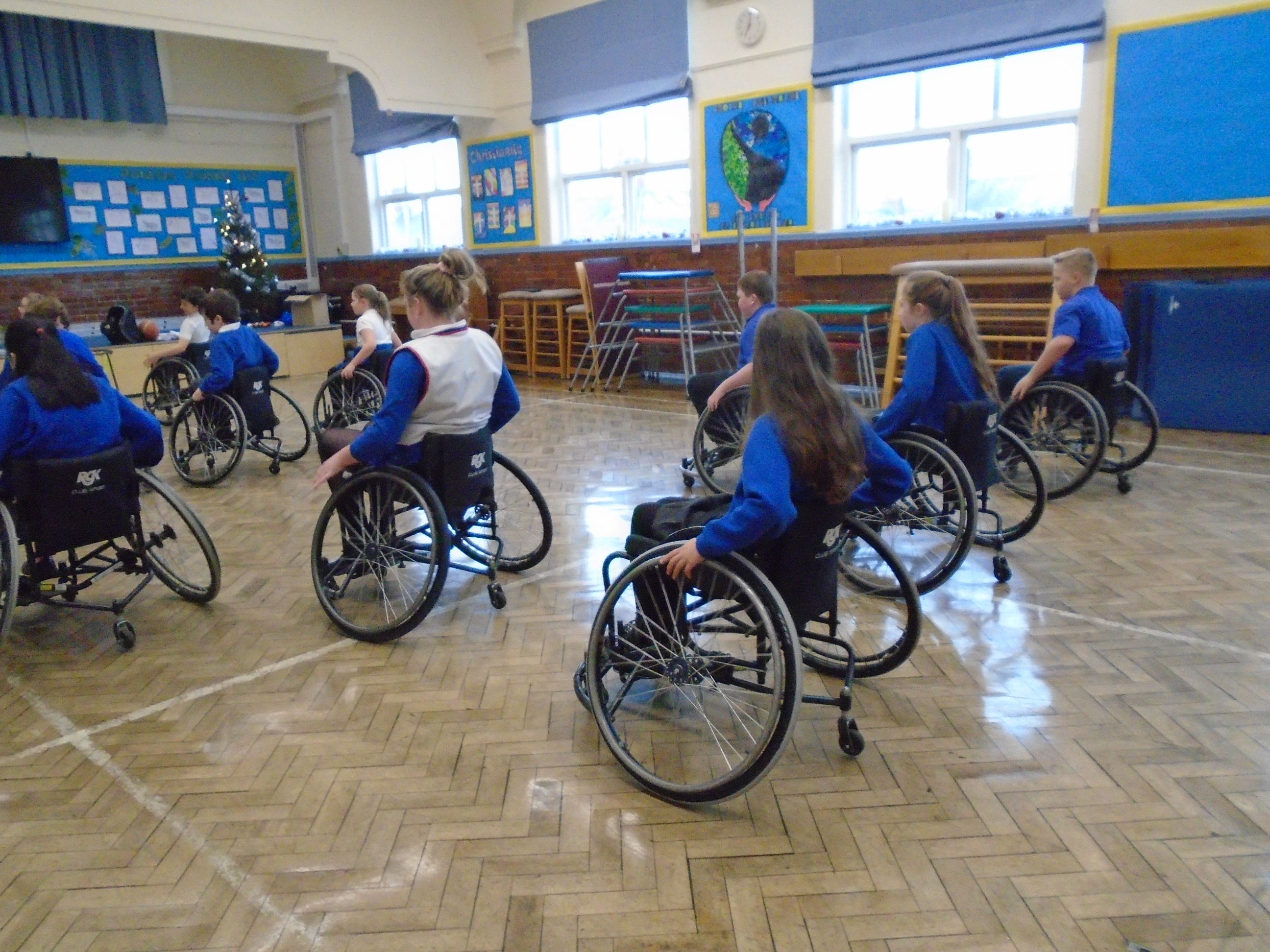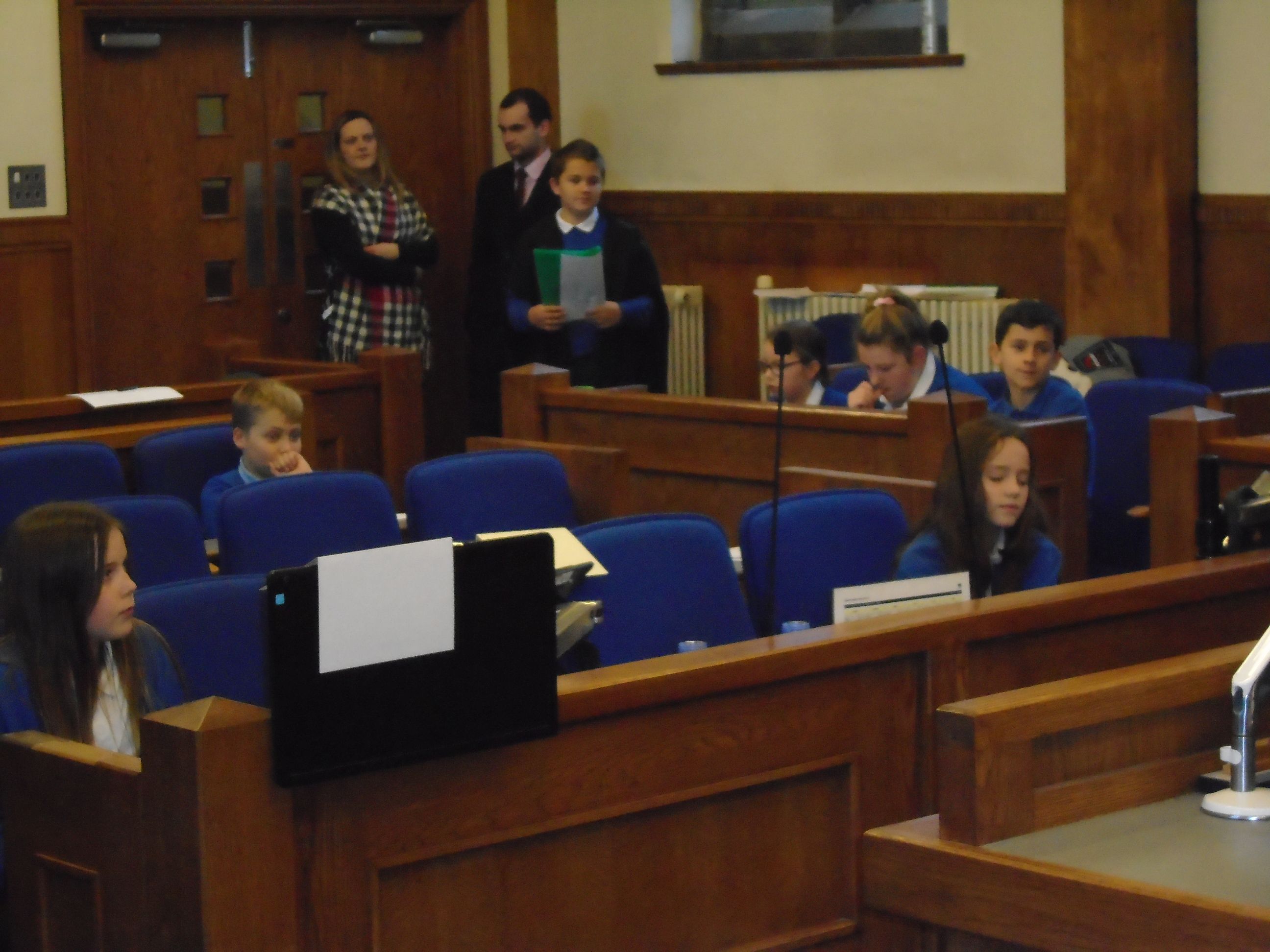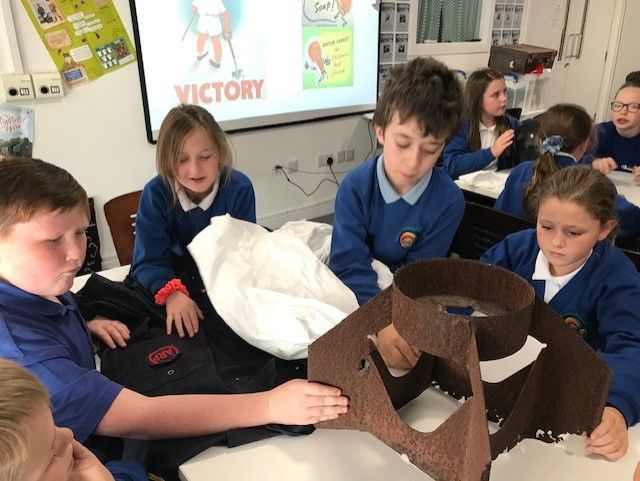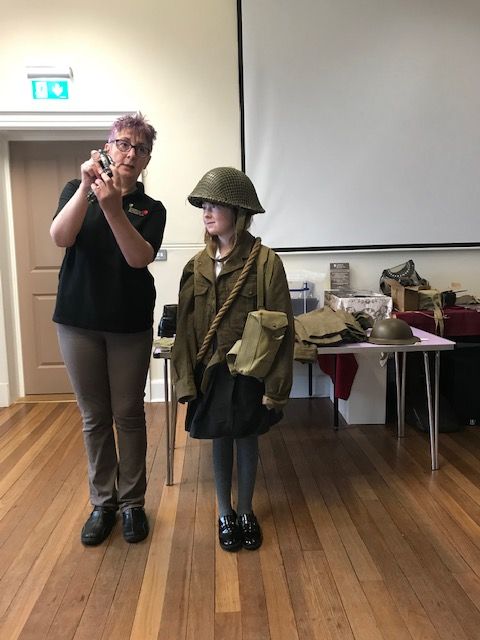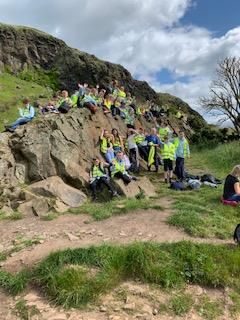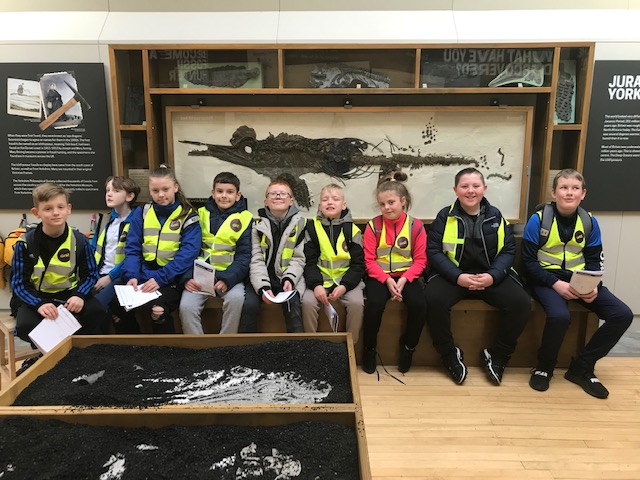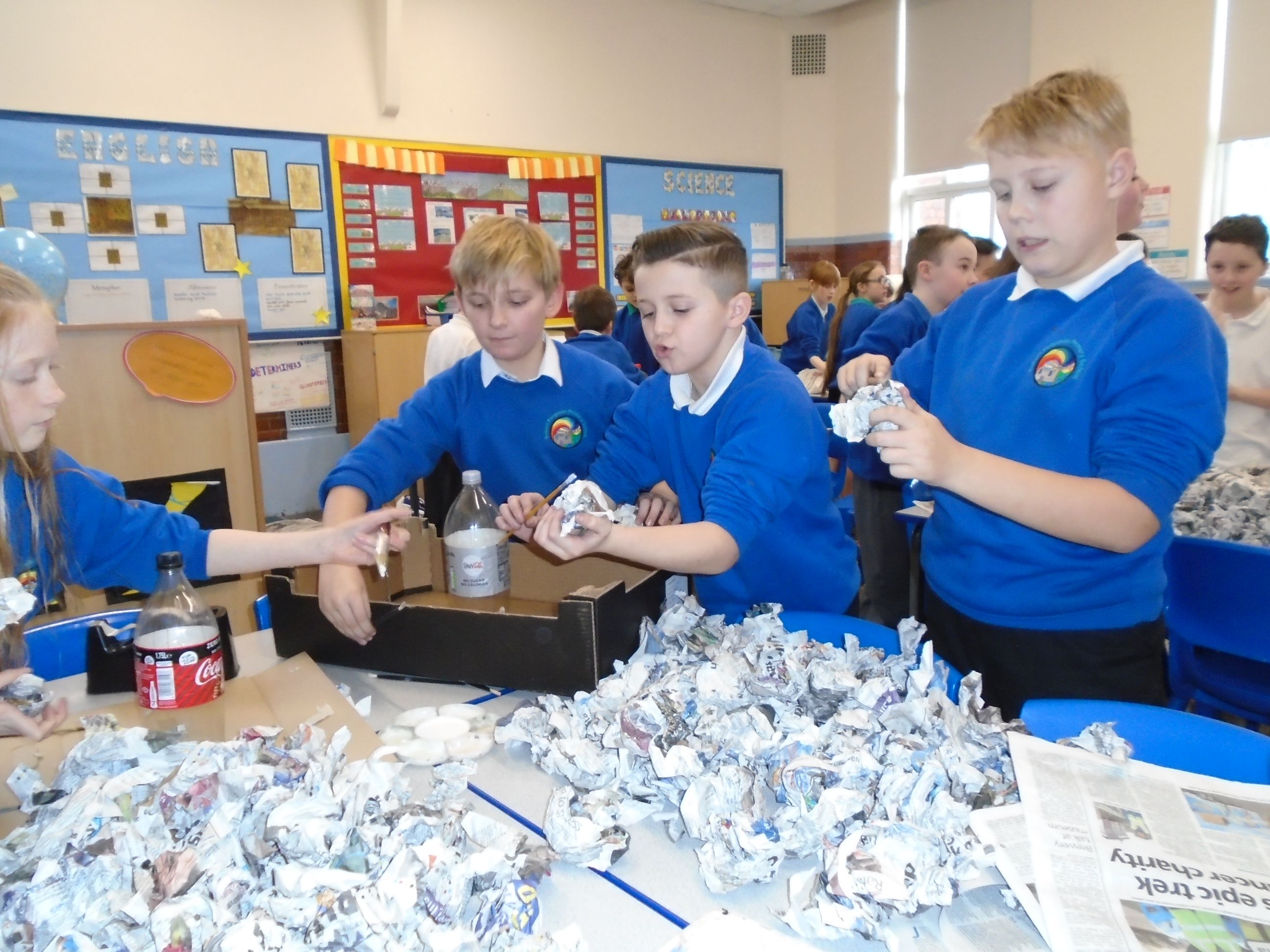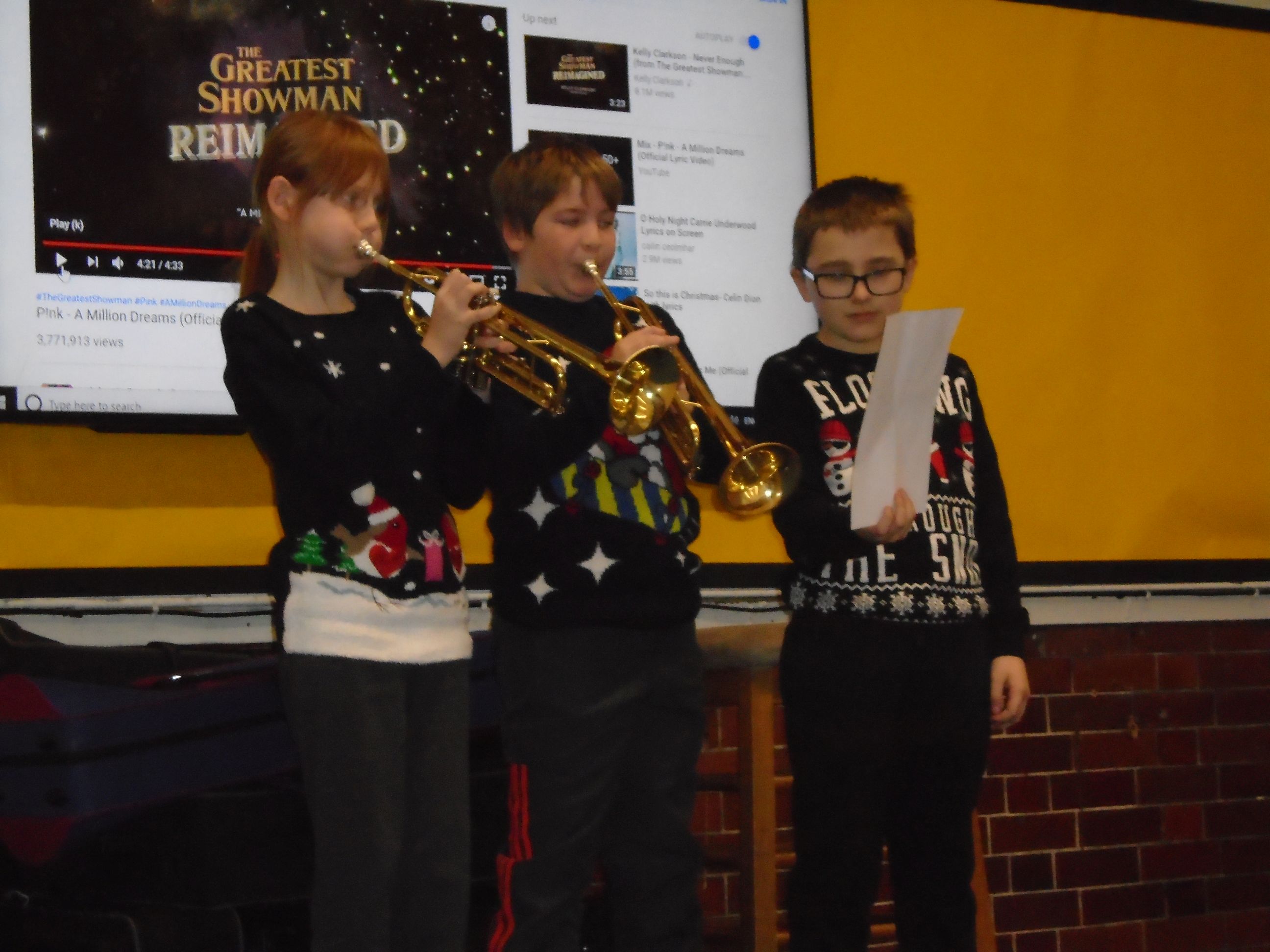

|
Home |
|
News & Events
|
|
Information
|
|
Curriculum & Learning
|
|
Classes 1 to 7
|
|
Classes 8 to 15
|
| Login |
Visitors: 1,518,688
| |||||||||||||||||||||||||||||||||||||||||
Our topic this term is World War Two. The children will learn when and why World War II began and find out about the key individuals and countries involved. In addition to this, they will discover all about evacuation; learn what it was like to live with food rationing and explore the contribution made by women to the war effort. Furthermore, they will learn important facts about the Holocaust and investigate events that were key turning points in the war, such as the Battle of Britain and the German invasion of the USSR. Studying World War II will help children to develop their investigation and evaluation skills; learn to organise information chronologically and understand how past events have helped to shape the world we know today.
Ways to help your child-
• Ask them about what they have learnt. Recalling information and retelling it to you will help them retain new learning.
• You can also watch Horrible Histories ‘World War Two’ it is full of facts and very funny! A great introduction the topic!
• Useful Website - https://www.bbc.co.uk/teach/class-clips-video/history-ks2-world-war-two/zjnyscw
English
In English we use a selection of quality texts to teach the key skills of spelling, grammar and punctuation. These quality texts are also used as models for our extended writing where we look closely at the style, technique and vocabulary choices of the author. We will be focusing on extending vocabulary and the use of advanced punctuation.
In reading, we will be exploring a variety of texts and focusing on answering more formal, assessment style questions.
Maths
This term we will be focusing on place value where children will learn to read, write, order and compare numbers up to 10,000,000 and determine the value of each digit; round any whole number to a required degree of accuracy; use negative numbers in context and calculate intervals across zero and solve number and practical problems that involve all of the above.
In addition, subtraction, multiplication and division, children will solve addition and subtraction multi-step problems in context, deciding which operations and methods to use; multiply numbers up to 4 digits by a 2-digit number using the formal written method of long multiplication; divide numbers up to 4 digits by a two-digit whole number using the formal written method of long division, and interpret remainders as whole number remainders, fractions or by rounding as appropriate by the context.
Fractions work will see children use common factors to simplify fractions; use common multiples to express fractions in the same denomination; compare and order fractions including fractions under ≥ 1. Generate and describe linear number sequences (with fractions), add and subtract fractions with different denominations and mixed numbers, using the concept of equivalent fractions; multiply simple pairs of proper fractions, writing the answer in its simplest form (eg ¼ x ½ = 1/8) and divide proper fractions by whole numbers (eg 1/3 ÷ 2 = 1/6).
We will continue to send home maths homework each week, to consolidate the learning in class; this is to be returned by Friday and will be marked in class with the children.
Science
This term, our ‘Light’ unit will teach children about light, how we see, shadows, reflection and refraction. The children will learn how light travels and how this enables us to see objects. They will demonstrate their knowledge by making and starring in their own television programme. The children will have the opportunity to find out about mirrors and the angles of reflection and incidence. They will work scientifically and collaboratively to investigate refraction, carrying out some fascinating experiments into the effects of bending light.
After half term, our 'Electricity' unit will build on learning from the Year 4 unit. Children will learn to represent circuits using symbols in a diagram. They will learn about two of the most important scientific inventors in the field of electricity – Thomas Edison and Nikola Tesla. Children will get the opportunity to develop their understanding of what electricity is and how to measure it.
P.E.
This is timetabled for Tuesday and Friday afternoon and will be outside where possible.
The children will also take part in the Daily Mile every day.
Please ensure your child has a full P.E. kit in school, which they will keep on their peg. They will change in school, prior to the lesson.
This should consist of:
- black shorts (leggings/jogging bottoms for outside when the weather is cold)
- P.E. T-shirt
- plain black plimsols or trainers.
- please ensure long hair is tied back and jewellery removed or covered with tape.
We would also recommend that the children take part in some form of exercise each day. This may be a walk, a bike ride, or an out of school club.
Class 14 Staff
Mrs Barbour - Monday, Tuesday, Thursday and Friday.
Mrs Martin - Wednesday
Mrs Dalrymple and Mrs Pearson - Senior Teaching Assistants (STA)
If there is anything specific your child would like to learn, please do get in touch via our school email
office@rferguson.cumbria.sch.uk
Class 14 Home Learning
HOMEWORK
Each child has a CGP book for Reading, Maths and Spelling, Punctuation and Grammar (SPAG). These are sent home on Fridays and should be returned by the following Friday to be marked in school.
You can also keep busy with
- Times Table Rockstars.
- Doodle Maths
- Doodle English
- Doodle Times Tables
- Doodle Spell
- Learning Beck games.
- BBC Bitesize daily lessons
- Oak National Academy online resources.
- Watching Newsround every day is a great way of keeping up-to-date with what is going on in the world.
Please continue to support your child's progress in reading by hearing them read every day and asking them questions about what they have read.
Class 14 Downloads
10 4 10 Reading RevisionLetter from Downing Street
10 4 10 Spag Revision
10 4 10 Maths Arithmetic Revision
10 4 10 Maths Reasoning Revision
10 4 10 Maths Arithmetic Challenge
10 4 10 Maths Reasoning Challenge
Class 14 Weblinks
TwinklOak National Academy
Classroom Secrets
BBC Bitesize
Topmarks
White Rose Maths
First News
Reading Comprehension
Tessellation - How to make a tessellation pattern
Tessellation video - What is tessellation?
Tessellation - create your own tessellation online
Tessellation - BBC Bitesize
